Good vs. Evil: Exploring Morality Through the Holocaust
Text Set for Night by Elie Wiesel
created by Kellie-Anne Crane
It is of the utmost importance that teachers prepare their students for their futures, whether that includes continuing their education or entering the work force. No matter what path students choose to take, there are certain concepts that all people need to recognize and consider as human beings, like the concept of morality. Everyone is confronted with moral decisions on a daily basis—whether it is a monumental decision, or even something as small as deciding to give the last cookie to your sister or to keep it for yourself. The events of the Holocaust and World War II are incredibly essential to study, not only because these events are our shared history but because of the unbelievable turmoil faced by millions. Teachers must help students to understand the gravity of this time period and work to teach it to students in a way that is both approachable and comprehensive.
By exploring the concept of morality through the Holocaust, students will be educated on what is perhaps the greatest tragedy of mankind and be forced to contemplate the morality of multiple scenarios throughout the holocaust. As upstanding citizens, we would like to think that we do not need to worry about anything like the Holocaust—but the fact remains that it happened less than a century ago. Teachers must help students examine the decisions and events that occurred during this vile period on a personal and real level so that they can gain a deeper understanding of the moral struggle faced during the era. Our youth must be educated on our past, both good and bad, to ensure that a similar situation such as this never arises.
Anchor Texts (although other texts may be used!):
Night by Elie Wiesel

Novel Excerpts
The Diary of a Young Girl by Anne Frank

The Book Thief by Marcus Zusak
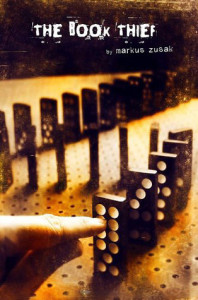
Number the Stars by Lois Lowry
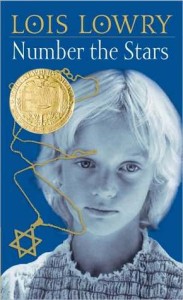
Graphic Novel
Maus I: A Survivor’s Tale by Art Spiegelman
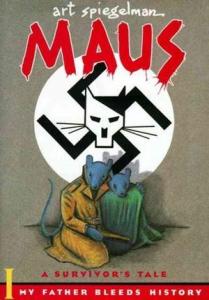
Picture Books
Terrible Things by Eve Bunting
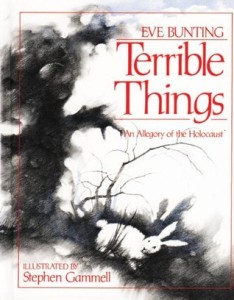
The Butterfly by Patricia Polacco
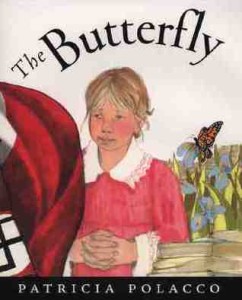
The Sneetches by Dr. Seuss
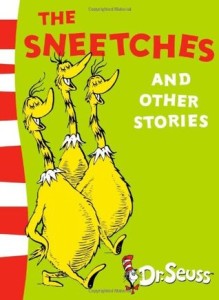
Pledge of Allegiance”
Songs
“Empty Chairs at Empty Tables” from Les Misérables
“Hide and Seek” by Imogen Heap
Speeches
Winston Churchill’s First Speech as Prime Minister on May 13, 1940
President Roosevelt’s Speech to Congress on December 8, 1941
Adolf Hitler’s Speech Declaring War Against the United States on December 11, 1941
Pope John Paul II’s Speech at Israel’s Holocaust Museum March 23, 2000
Poems
“The Creed of a Holocaust Survivor” by Alexander Kimel
“The Action in the Ghetto of Rohatyn, March 1942” by Alexander Kimel
Charts
Lawrence Kohlberg’s Stages of Moral Development
Online Resources
Timeline from 1918-2000
Viktor Frankl: Why Believe in Others TED Talk
“Oprah and Elie Weisel at Auschwitz” (1:20- 6:05)
“Man that saved hundreds of children from the Holocaust surprised by them decades later”
Articles
“Ghettos Under Nazis” by Susan D. Glazer
“Baking Saved this Man during the Holocaust, and Is Still His Livelihood” by John M. Glionna
“3 Famous Moral Dilemmas That Will Really Make You Think” by Lenna Son
“German Woman, 91, is Charged with 260,000 Counts of Accessory to murder as Prosecutors Accuse Her of Being a Nazi SS Radio Operator Who Served in Auschwitz”
Guiding Questions
- Are there tenets of morality that are universal?
- Can a person’s sense of morality be altered by their situation or surroundings?
- Did the conditions of the holocaust change people’s morals? How so?
- Are there good and bad people?
- What can we learn from the tragedy of the Holocaust?
Writing Prompts
- Consider one of the famous moral dilemmas we have discussed. What do you believe is the right answer in this context? Why
- What makes someone a good person? A bad person? Are there clear binaries between the two?
- Choose a text (novel, story, video, song, etc.) from class that has helped to give you a better understanding of the holocaust. What did you learn from this text? Why is it important?
- Choose a quote or passage from Night. What does this scene say about morality?
- Is there any moral(s) that you find to be universal, as in followed and accepted by everyone? What is it and why is it so widely accepted? If not, explain why you think there is no universal set of morals.
A special thanks to Kellie-Anne for this inspiring text set! We think this text set would be useful for many anchor texts! What do you think?


